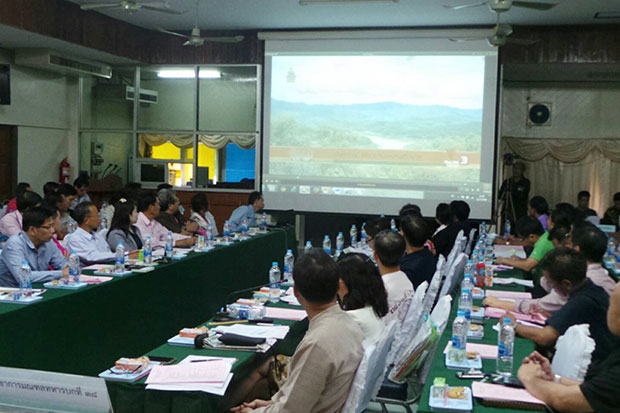
NAN — Water supplies for household use and drinking and stocks of fish across this northern province have been contaminated by agricultural chemicals used excessively in insect and weed control on maize farms, a Naresuan University research has found.
A recent study showed 2,400 tonnes of herbicides and pesticides were being used annually by maize farmers, mostly farming on mountain slopes and in watershed forests, and this had caused widespread water and soil contamination, Assoc Prof Dr Puangrat Kajitvichyanukul of the university’s faculty of engineering said.
The academic said water samples taken from fresh water supplies in eight out of nine districts showed traces of commonly used broadleaf and grass weed killers — glyphosate, atrazine and paraquat — and an insecticide widely used to control foliage and soil-borne insect pests, chlorpyrifos.
The concentration of atrazine in tap water samples averaged 18.78 micrograms per litre, exceeding the limit of 0.5 ug/L set in Australia.
Dr Puangrat said random tests of fish in waterways also found detectable levels of glyphosate exceeding the limits set by the National Bureau of Agricultural Commodity and Food Standards and the United Nations' food standards body, the Codex Alimentarius Commission.
Nan governor Suwat Promsuwan has called an urgent meeting with health, environment and other concerned officials to discuss a solution to the problem. Mr Suwat said a special working panel would be set up to directly deal with the matter and he had instructed health authorities to conduct thorough examinations of tap water quality in all 15 districts of Nan.
The province will be declared a disaster zone if the contamination levels are found to be critical and pose health and environmental risks.
A ban was imposed years ago on the use of herbicides and insecticides in watershed forest areas but many maize farmers ignored it.
Mr Suwat said a provincial panel tasked with addressing agricultural chemicals-related issues had previously proposed the Ministry of Natural Resources and Environment use Section 44 of the interim constitution to deal with violators.